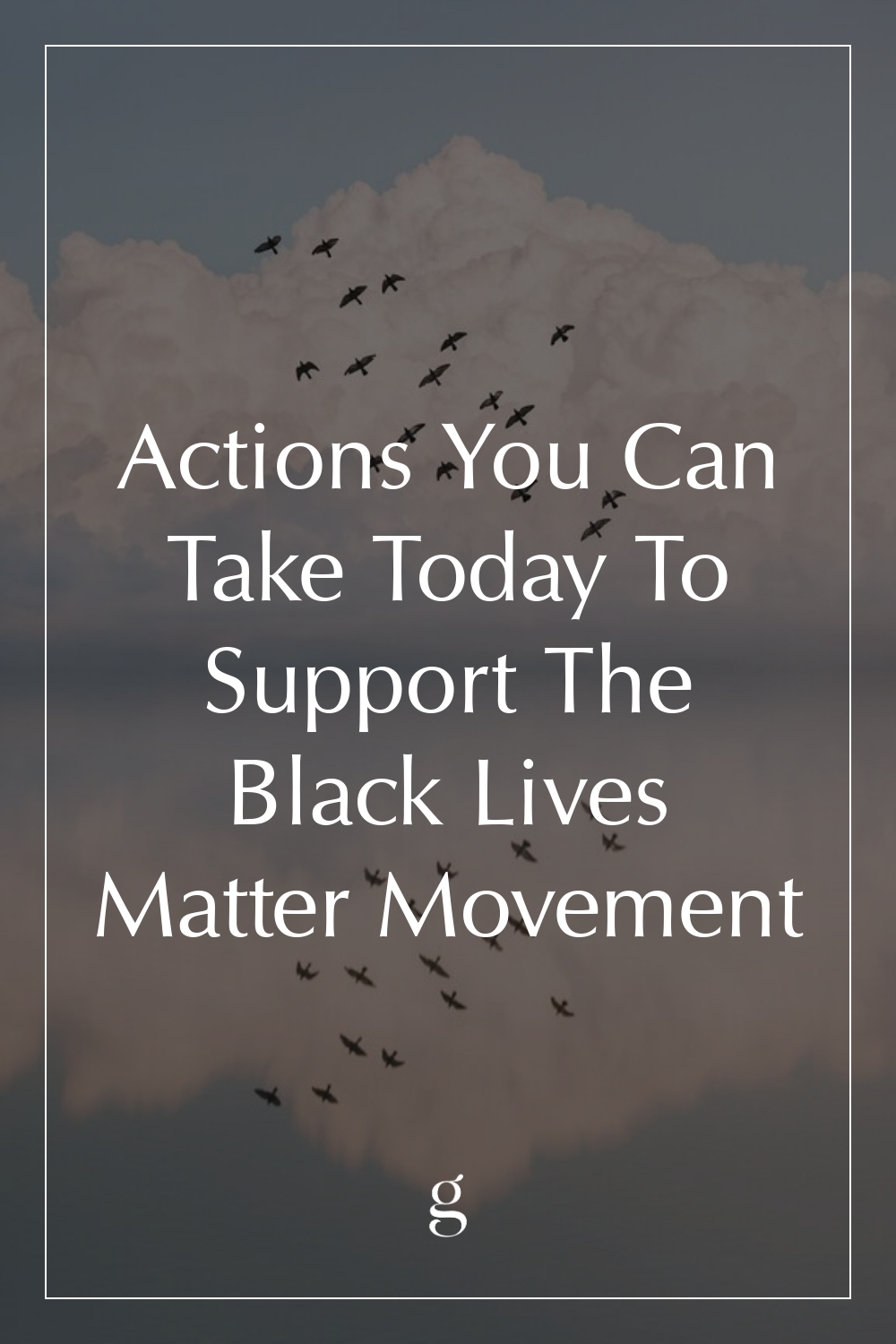
Actions You Can Take Today To Support The Black Lives Matter Movement
Where To Donate & Actions To Take
Black Lives Matter is an ongoing demand for justice, equality, and reform. The movement goes beyond spreading awareness, and calls everyone to take direct action in honor of Breonna Taylor, George Floyd, Tony McDade, Ahmaud Arbery, Elijah McClain, Jacob Blake, Walter Wallace Jr., Casey Goodson, and many others.
Below, you’ll find resources for where to immediately donate, sign petitions, and contact your elected officials. If you’re donating, consider an automatic recurring donation—this is not a one-time cause. We must continue to contribute, to educate ourselves, to make our voices heard, and to care for those around us.
When you’ve moved through the following, be sure to check out these books, podcasts, and support anti-racism educators who are leading this movement.
Donate
1. Black Lives Matter
Black Lives Matter is an organization in the US, UK, and Canada with a mission to eradicate systemic racism, to end violence against Black communities, and to center and affirm Black joy.
2. NAACP Legal Defense Fund
This legal defense fund supports the US’s premier legal organization fighting for racial justice, demanding structural changes to expand democracy, and supporting equality for all Americans. Donations to this 501(c)(3) nonprofit support civil rights defenses, voter protection, and more.
3. The National Bail Fund Network
The National Bail Fund Network provides support for those in need of bail from recent protests, people in immigration detention centers, and people at risk for COVID in jails and detention centers. This fund also works to abolish the money bail system and pretrial detention.
4. Say Her Name
Say Her Name is a movement born from the African American Policy Forum calling attention to police violence and systemic issues affecting Black women, girls, and femmes. Donations to this 501(c)(3) nonprofit support advocacy, activism, and policy reform initiatives.
Sign
1. These 6 Color of Change Petitions
With 7 million members, Color of Change is the largest online racial justice organization in the United States. The nonprofit has a handful of petitions you can sign, including:
2. Justice for George Floyd
It’s become the most prominent petition in US history, with 19.6 million signatures at the time of writing. This petition demands Mayor Jacob Frey and DA Mike Freeman to take action in convicting George Floyd’s murderers.
3. Black Lives Matter’s #DefundthePolice
The Black Lives Matter movement is calling for radical and sustainable solutions that affirm the prosperity of Black lives. This petition is a call to end systematic racism through the defunding of police and the reallocation of funds to Black communities and resources.
4. Stop Neighborhood Oil Drilling
This petition is specific to our home city and demands LA City Council to end industrial oil drilling in the city’s low-income communities, often communities of color. Specifically, the petition aims to place a 2,500-foot buffer zone around homes, schools, hospitals, and other sensitive land uses by 2025.
Go here for a further list of petitions.
Call & Email
Recognize the importance of reparations for slavery in the fight for racial justice, and take action by urging your U.S. House Representative to support a commission to study and develop reparation proposals for African Americans. Read more about the H.R. 40 bill here.
See where your state is at on taking action to prevent police violence here—plus, you can find your representative and see how they’re voting on the subject.
Learn more about voter suppression and get involved in protecting this right for all with Fair Fight. Additionally, follow the prompts here to find out who to call and what to say in order to support protections for Black-owned businesses.
Find your local, county, state, and/or federal representatives and call or email to support criminal justice reform, allocation of taxpayer funds towards community services, and call for civilian oversight of police.
Support Protestors
In addition to using the above measures to support the movement, you can directly defend its on-the-ground advocates, as well—even without meeting them there. And if you’re unable or choose not to protest in-person, here are a few ways you can embolden and encourage your fellow activists. (At this time, please take into consideration the spread of COVID-19 and its suggested safety measures before offering assistance.)
1. Organize Supplies
Providing necessities to protestors can allow them to focus solely on their mission while marching. To stay healthy and unharmed, they could benefit from face masks, hand sanitizer, gloves, and first aid equipment. For sustenance, food and water. Other comforts can include sunscreen, sunglasses (or goggles), hand towels, and ear plugs. And though more essential to the movement’s message than one’s wellbeing, sign-making supplies likely wouldn’t go unappreciated. Sturdy foam-core boards, wide-tip markers, and other classic craft-making tools can do the trick. Then reach out to local organizers to find out where your supply kits can be donated.
2. Open Your Home
If you’re staying home, you can invite others into it. Your space can be used by protestors looking for temporary shelter from police, as a meeting place for them to reconvene with friends, or as safe space to re-strategize and speak freely. It could also serve as a site for them to take breaks to eat, use the bathroom, or get relief from any physical and emotional stress. In June, a Washington, D.C. man allowed nearly 70 protestors to spend the night in his house in order to protect them from being arrested for violating the city’s curfew.
3. Offer Child Care
If you know someone who would like to protest in-person but would prefer not to bring their child(ren), you can offer to babysit while the parents are attending an event. Take into consideration the strength of your relationship with the parent, and even how well the child knows you, just in case the task runs longer than expected. And be sure to ask the parent if the child will be aware of their whereabouts, or if you are to keep them innocently distracted instead. Confirm that your home is equipped for childcare and all its possible surprises before making this offer.
4. Be An Emergency Contact
In the unfortunate event that a protestor gets hurt or arrested, they may need an emergency contact. To fulfill that role, you will need their full legal name, date of birth, and the contact information for other friends and family that you would need to notify. Maybe even their lawyer, if they have one. Have on hand the phone numbers for local hospitals and precincts, too. Establish beforehand how you would obtain funds for bail if needed. Check in every so often so you know of the protestor’s location, but make sure that their body displays your phone number, too. Lastly, arrange or offer their transportation out of the protest (or jail) and back home to safety.
